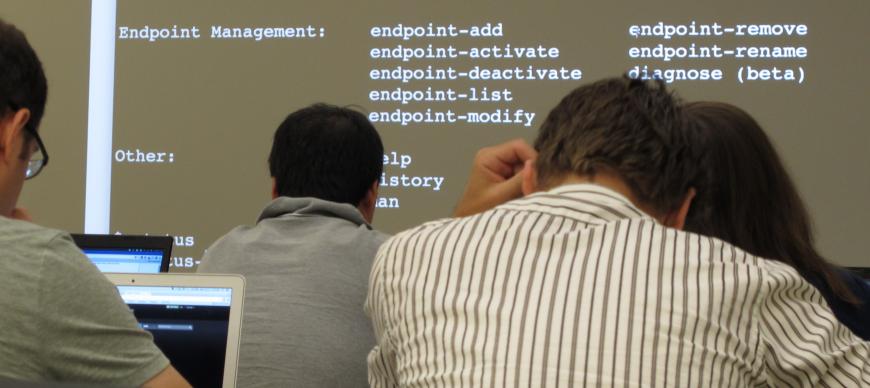Quality software is integral to effective high-performance computing. The Research Computing Center (RCC) installs, configures, and maintains hundreds of software packages on the RCC cluster, Midway.
For more information on available software at RCC, see the Software section of the User Guide, and the full list of installed packages.
Upon request, the RCC can build and install open-source software. The RCC can also help with negotiating licensing agreements and purchasing commercial software or migrating purchased commercial software to our systems.
The RCC actively maintains many software packages, including:
-
Compilers: We have the latest GNU and Intel C/C++/Fortran compiler suites, as well as Nvidia’s CUDA compiler for GPU computing. We also maintain compilers for many other languages, including Java, Julia, Go, and Haskell.
-
Interactive programming environments: We maintain many open-source and commercial programming environments, including Python, MATLAB, Mathematica, Stata, and R. These environments often include pre-installed libraries and packages.
-
Data processing tools: Examples include programs for dealing with large-scale data formats, like HDF5 and NetCDF, data-movement programs such as Globus, and database software such as PostgreSQL and Hadoop.
-
Numerical libraries: Examples include Intel’s Math Kernel Library (MKL) and OpenBLAS, highly optimized implementations of linear algebra routines; the GNU Scientific Library (GSL); and FFTW, a Fourier transform library.
-
Community codes: We have a large number of commonly-used scientific software. Examples include LAMMPS and Gromacs for molecular dynamics; YT and lfrit for astrophysical analysis and visualization; QIIME for microbiology; and programs such as SAMtools, Bowtie, BLAST, GATK, PLINK, and TopHat for genetic analysis.
To inquire about specific software installations on the RCC cluster, please send an email to help@rcc.uchicago.edu.

